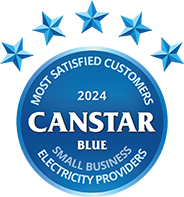
This year over 680 small business owners across Australia had their say when it came to rating their electricity provider on key criteria like client service, value for money, bill and cost clarity, online tools and advice and ease of sign up. Canstar Blue has collated this data to give you a nuanced guide about the compared providers and help you make a more-informed purchase decision. Keep in mind that, while our ratings include five of the most prominent small business electricity retailers in Australia, you may find others operating in your area.
Canstar Blue surveyed 687 Australian small business owners/decision makers for their feedback on their energy retailer. Respondents had to have an electricity account that they use for business and that their business pays for, in order for their response to be eligible.
Respondents rate their satisfaction with their electricity and gas provider from zero to ten, where zero is extremely dissatisfied and ten is extremely satisfied. Provider satisfaction was rated by respondents on the following criteria:
The winning brand is the one that receives the highest Overall satisfaction rating once all the scores from the Overall satisfaction criteria are combined and averaged.
Brands must have received at least 30 responses to be included, so not all brands available in the market have been compared in this survey. The brands rated in this survey are listed below in order of best overall satisfaction.
Best Small Business Electricity Providers:
Topping the tables for the first time since 2021 is Red Energy, which scored a perfect five stars across the board in our 2024 survey.
Rounding out the top three this year is EnergyAustralia, with four stars in all categories, and last year’s winner Alinta Energy.
Find more detailed information on our ratings methodology.
Red Energy is back at the top of our business electricity ratings, earning an impressive five stars for every category in 2024. This includes five stars for customer satisfaction, value for money, client service, bill and cost clarity, online tools and advice and for ease of sign-up.
is back at the top of our business electricity ratings, earning an impressive five stars for every category in 2024. This includes five stars for customer satisfaction, value for money, client service, bill and cost clarity, online tools and advice and for ease of sign-up.
Snowy Hydro-owned Red Energy offers a range of products for small to medium businesses in New South Wales, Victoria, South East Queensland, South Australia and the Australian Capital Territory. Options include standard business saver plans, as well as plans with bonus Qantas Points and higher solar feed-in tariffs. Red Energy’s plans include no lock-in contracts or exit fees, flexible payment options and e-Billing and communications. Business customers can also sign up for dual fuel, with gas products also offered across all states.
![]()
EnergyAustralia earned four stars for overall satisfaction, value for money, client service, bill and cost clarity, online tools and advice and ease of sign-up in our 2024 ratings.
EnergyAustralia offers electricity and natural gas plans to small businesses across NSW, VIC, QLD, SA and the ACT. Its business product range mirrors its residential range, with variable rates and no lock-in contracts available as well as fixed-rate options. Market offer plans generally include guaranteed discounts on your total bill and a one year benefit period. EnergyAustralia’s plans also include solar feed-in tariffs and optional GreenPower add-ons.
![]()
Last year’s winner Alinta Energy received four stars for overall satisfaction, value for money and client service in our 2024 ratings. It was also awarded three stars each for bill and cost clarity, online tools and advice, and ease of sign-up.
Alinta Energy services small to medium businesses in NSW, VIC, SEQ or SA for both electricity and gas. The retailer offers a range of business-specific plans for customers in this space, including a speciality offer that allows Qantas Business Rewards members to earn points when they pay their bill. All plans come with no exit fees or lock-in contracts and flexible payment options are available. Alinta Energy’s business energy range also extends to provide dual fuel options to eligible Western Australian-based businesses.

Synergy was rated four stars for overall satisfaction, value for money, client service, bill and cost clarity and ease of sign-up. However, it received three stars for online tools and advice.
Perth-based provider Synergy offers a range of plans for prospective business energy customers in the city and surrounds. Each plan comes with a unique proposition for customers, including variable or fixed rates and anytime or on/off peak pricing. Additional savings may be available to customers who bundle their business gas, although most energy plans require a 24-month contract.
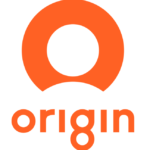
Origin Energy was awarded four stars for value for money, client service, bill and cost clarity and ease of sign-up. It also received three stars for overall satisfaction and online tools and advice.
Origin Energy’s business products follow a similar structure to that of its residential offerings, sticking with two to three market offers in each area for electricity and natural gas. Leaning more towards variable rates, its plans differ between 12-month benefit periods and flexible contracts, but all come with no exit fees. The retailer currently offers business electricity, natural gas, LPG and solar products across NSW, VIC, QLD, SA and the ACT. WA businesses may also be eligible for gas products.
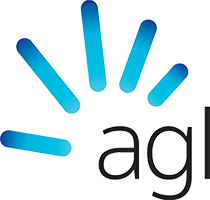
AGL took out three stars for all categories in 2024, including overall satisfaction, value for money, client service, bill and cost clarity, online tools and advice, and ease of sign-up.
AGL offers a selection of electricity and natural gas variable rate contracts to small businesses across NSW, VIC, QLD and SA. These plans come with varying benefit periods, along with no exit fees or lock-in contracts. Alongside its natural gas and electricity offers, the retailer also plays into the solar space for business customers, with plans and Power Purchase Agreements (PPA) available. WA-based businesses may also be eligible for dual fuel with AGL.
Read more: Which phone provider is best for businesses?
Looking to make dollars and cents of your personal or small business finances? MYOB’s accounting software includes options for invoicing, payroll, expenses and more. For more information on the featured plans below, click the button below to be referred to MYOB’s site.
|
For sole traders and small businesses with up to 2 employees.
|
From $34.00/month min. cost $34.00 |
Go to site |
|
For small to medium businesses with multiple employees.
|
$63.00/month min. cost $63.00 |
Go to site |
|
For established businesses needing to fast track pay runs and inventory.
|
$75.00/month min. cost $75.00 |
Go to site |
|
For complex businesses managing multiple locations, jobs or currencies.
|
$97.50/month min. cost $97.50 |
Go to site |
|
For businesses that need standalone payroll for up to 4 employees
|
$9.00/2 years min. cost $9.00 |
Go to site |
|
The all-in-one mobile app for sole operators, freelancers, and the self-employed.
|
$12.00/year min. cost $12.00 |
Go to site |
Business energy has become big ‘business’ to electricity providers in Australia, not least because the usage needs of business customers are generally a lot higher than your typical household’s. While some providers publish specific energy rates for business customers, many instead operate on a personalised basis where rates are tailored or negotiated based on the specific customer’s needs.
In addition to the energy providers included in this report, there are a number of retailers that primarily or exclusively serve business customers, including:
The advantage of these retailers is that they specialise in and understand the needs of business electricity customers. In addition to standard retail services, some of these energy companies also undertake energy audits for customers to help them understand how they can manage their energy usage, or offer commercial solar packages or plans. They may also provide personal account managers so you always have a specific contact to get in touch with. Of course, if you’re not interested in these extras and services, and you’re simply looking for the cheapest price, you’ll need to shop around and get quotes from multiple providers.
If you haven’t compared electricity providers recently, your energy bills could be unnecessarily cutting into the bottom line of your business. But which electricity company is best?
For most Aussie business owners, the biggest energy concerns lie in price and usage. Nearly one-third (35%) of respondents in our 2024 survey said their business tries to save energy where possible, while 21% said that the cost of power was their business’ greatest financial concern. If your business holds similar sentiments, then choosing a provider may come down to the cheapest price possible, or whether it has any energy efficiency or demand response programs that could help to offset the rising cost of energy.
Alternatively, 13% of respondents said they opt for greener or carbon neutral energy plans for their business, with a further 10% agreeing that they recently installed solar panels to cut back on energy costs. These kinds of customers may choose then to focus on a retailer that can cater to clean energy initiatives on their behalf, or offer a plan that will help return the most on their solar investment in the years to come.
Remember that every business is unique, and the needs of your company may be different to those of another. What’s important is that you understand how your business uses power, and you’ve considered what your business could do to be more energy efficient. It also pays to regularly shop around to ensure you’re on the best deal for your business needs.

Tara Donnelly is an internet and mobile expert – sectors she’s spent a decade covering – and also oversees energy and consumer technology content. She holds a Bachelor of Communications from the University of Canberra and has shared her expertise on national media including 9 News, 7 News, Sunrise and the ABC.
Meet the Editorial Team
Samantha Howse is Canstar Blue’s Consumer Research Specialist, coordinating the consumer research program behind our customer satisfaction awards across Canstar and Canstar Blue in Australia and New Zealand. Sam has earned a Bachelor of Business (Marketing) from Griffith University and, with seven years in market research and two years in marketing, she is experienced in survey design, implementation and analysis, coupled with an understanding of marketing principles and best practice.
Meet the Research TeamAccording to the most recent data from the Australian Bureau of Statistics, Australian businesses consume about 154,439 gigawatt-hours of electricity per year, collectively. The actual amount of electricity a business consumes however, will depend on its size, hours of operation, energy efficiency and overall power usage needs.
According to Canstar Blue’s 2024 small business data, the average quarterly electricity bill for small businesses in Australia was $995 – slightly up from $953 in 2023. New South Wales businesses were found to have the highest spend, with $1,184 recorded per quarter, while Northern Territory businesses paid just $450 a quarter.
Here are the previous winners of Canstar Blue’s Small Business Electricity Providers Customer Satisfaction Award:
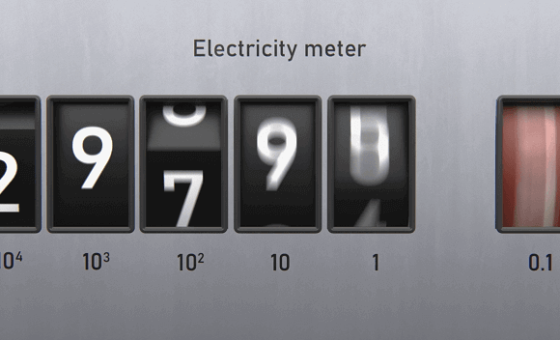
Best-Rated Electricity Providers for Business - May 1st
Canstar Blue has calculated the average electricity cost per kWh across Australia. Learn more about kWh costs in this guide.
– Read more
Best-Rated Electricity Providers for Business - April 7th
As a senior or pensioner, you may be entitled to specific energy deals that can help keep costs down. Consider providers, plans and deals at Canstar Blue.
– Read more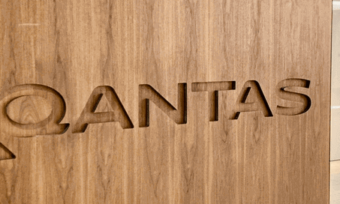
Best-Rated Electricity Providers for Business - April 2nd
Red Energy has partnered with Qantas to offer energy customers 15,000 frequent flyer points, plus ongoing points for paying bills on time.
– Read more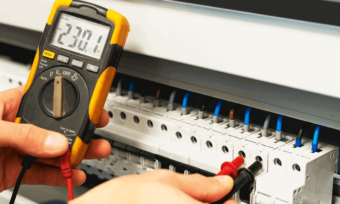
Best-Rated Electricity Providers for Business - March 8th
What is power factor? How is power factor calculated? In this article, Canstar Blue has these answers and more.
– Read more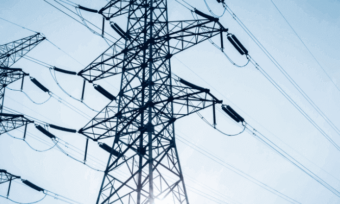
Best-Rated Electricity Providers for Business - February 19th
What’s the average electricity bill in Australia? Canstar Blue breaks down household energy costs by state, capital city and household size.
– Read more^By clicking on a shop online, compare now, buy online, more details, go to site or check latest prices button, you may leave Canstar Blue and be taken to a referral partner to compare. Canstar Blue may be paid for this referral. You agree that Canstar Blue’s terms and conditions apply to this referral. If you click on a brand that is not a referral partner, you will be taken to a brand page on Canstar Blue.
Canstar Blue may earn a fee for referrals from its website tables, and from sponsorship of certain products. Fees payable by product providers for referrals and sponsorship may vary between providers. Generally, sponsorship fees are payable in addition to referral fees. Sponsored products are clearly disclosed as such on website pages. They may appear in a number of areas of the website such as in comparison tables, on hub pages and in articles. Sponsored products may be displayed in a fixed position in a table, regardless of the product's rating, price or other attributes. The table position of a Sponsored product does not indicate any ranking or rating by Canstar. The table position of a Sponsored product does not change when a consumer changes the sort order of the table. For more information please see How Are We Funded.
*Prices correct as of publication date.
